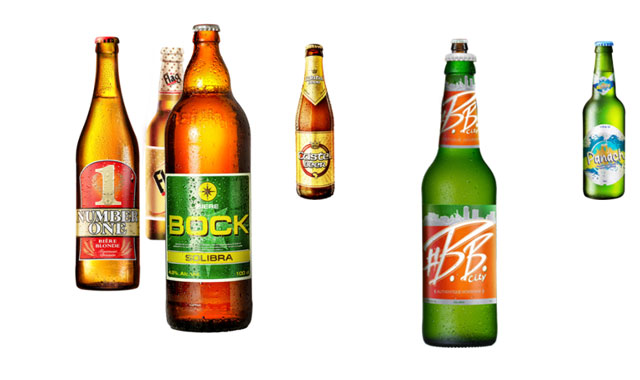
Abidjan, Ivory Coast | AFP | “In our house, the beer is Bock!” boasts the familiar slogan for the lager that is Ivory Coast’s market leader, brewed by Solibra.
“Beer Ivoire, loved by Ivorians!” says a competing advert for Ivoire lager, brewed by newcomers Brassivoire.
On posters and huge billboards around the west African country, the rival ads, often side by side, compete for attention.
Since Brassivoire’s arrival in the country’s emerging beer market in April 2016, the two breweries have been battling it out in what some observers are calling “the beer war”.
Concerns have been raised, however, about the effect the marketing war could have on impressionable youngsters.
“When we say ‘the beer war’, we’re talking about a real war, make no mistake about it,” said Jean-Baptiste Koffi, president of the federal consumers’ union (UFC), which represents 125 groups.
“They don’t pull any punches.”
– ‘Torn down’ –
Solibra is owned by the French group Castel, present in Ivory Coast since 1955. The new kid on the block, Brassivoire, is owned by the Dutch giant Heineken and trading firm CFAO.
In just over a year since setting up shop in Ivory Coast, Brassivoire has managed to grab a third of the market — and it is gearing up to take more.
In April, Brassivoire opened a 150-million-euro ($177-million) plant just outside Abidjan, capable of producing about 160 million litres (336 million pints) of beer per year.
The market in Ivory Coast is a lucrative one. Nearly 30 million litres of beer is consumed annually in the country of more than 23 million people.
Now the green labels of Solibra’s Bock compete for advertising space with the chilled glasses of the rival Ivoire lager.
“We were stunned to discover at the end of May that many of our Brassivoire billboards up at different stores in the resort town of Grand-Bassam had been torn down,” Brassivoire spokeswoman Bintou K. Appia told AFP.
She nevertheless played down talk of a war between the two rivals.
– ‘Responsible, healthy, fair’ –
The UFC consumers’ union is not happy, announcing a campaign against ads and billboards placed near schools.
And the CAFCI body that monitors this kind of advertising in Ivory Coast has denounced marketing tactics, which, it said, could influence impressionable youngsters.
“Attention,” the UFC warned the two companies in an open letter. “You are selling alcohol.
“Aggressive marketing to vulnerable people, such as youngsters, is not healthy,” it added.
Solibra issued a statement in response, reaffirming its commitment to responsible advertising. Brassivoire, too, has since called for “healthy and fair competition”.
In comments to AFP, Solibra deputy director Roger Adou acknowledged that the two rivals had got carried away in their marketing battle.
“It’s not healthy that we see beer bottles marketed to minors who are very vulnerable everywhere in Abidjan,” he told AFP.
They had been swept up in “this beer war”, he conceded — but enough was enough.
“We have a duty to ensure our communication is done in a responsible way so as not to put minors at risk, because we’re selling alcohol and not peanuts,” Adou added.
– ‘Weak’ profit margins –
Bar and restaurant owners in Ivory Coast have other concerns however.
“These brewers are getting rich and are doing business at our expense,” said Josue Gnahoua, president of the store owners’ union.
Although the average bottle of beer costs consumers 500 CFA (76 euro cents, 89 US cents), shop and bar owners pay a deposit to the brewery to stock their shelves.
Once the beers are sold and customers have brought back the bottles, the sellers return the bottles to the breweries to get their deposit back.
But revenues are not enough to offset the price of the bottle, they complain.
“Our profit margins are weak. The bottle costs more than the liquid,” Gnahoua said.
The breweries have promised to address the issue.
But analyst Dominique Gnangoin sees no end in sight in the battle for beer market supremacy.
“The sector has a bright future in Ivory Coast, where the war will get increasingly furious,” he said.
 The Independent Uganda: You get the Truth we Pay the Price
The Independent Uganda: You get the Truth we Pay the Price





